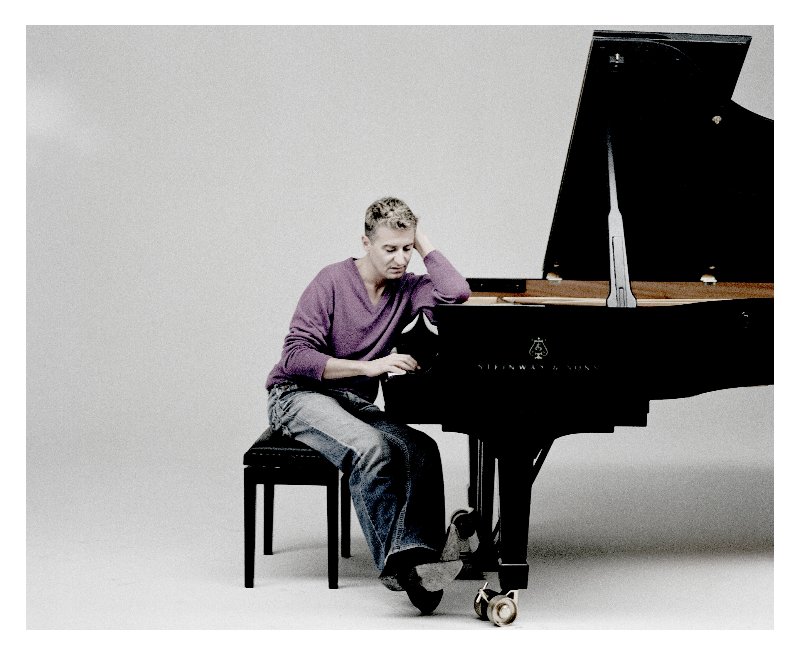

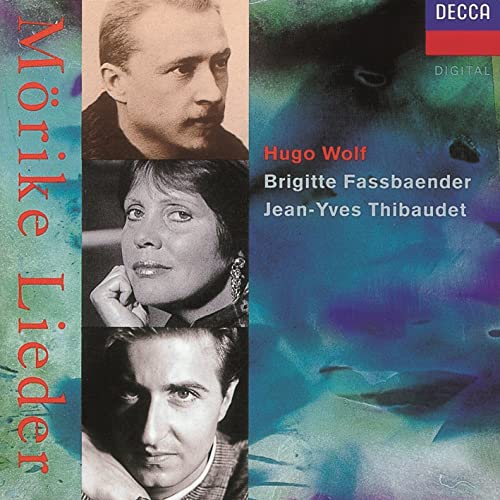 BD:
Do you have enough time in each city to get used to it and to understand
it?
BD:
Do you have enough time in each city to get used to it and to understand
it?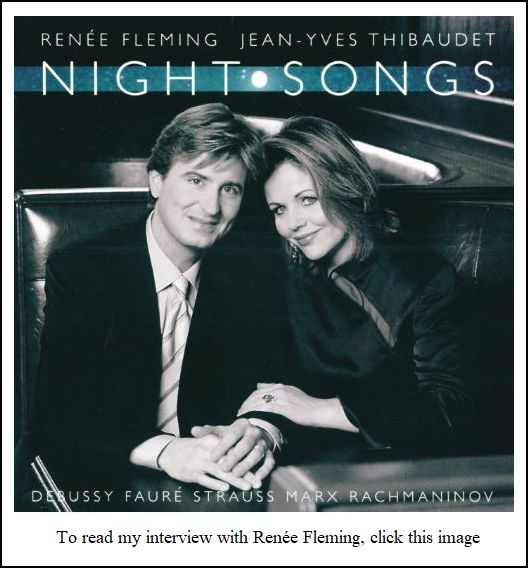 J-YT:
That’s my motivation to learn a new piece, right! And I do that
at least two new concertos every year, if not more sometimes. I have
already maybe forty-one or forty-three that I’ve played, but I think it’s
important you have to do them especially when you’re still young. You have
to learn as much music as you can because it gets more and more difficult
later for a lot of different reasons. I’m only thirty-one. I’m
not really old, but I already have more difficulties. It’s more difficult
for me now to learn a new piece than ten years ago or even five years ago.
Not technically because I’m a very good sight-reader so I can learn a piece
very quickly for the notes, but it is just there is more and more pressure.
I used to have run-throughs, and now it’s not the same if you’re going to
the Boston Symphony and it’s the first time you’ve played a piece.
There’s got to be a first time somewhere. And then there are all the
records people have at home and hear on radio. Now when you go somewhere
it really has to be good the first time. So it really adds a lot of
pressure, which is good, but it means that it takes me more time now to learn
a new piece to be comfortable and be happy with it.
J-YT:
That’s my motivation to learn a new piece, right! And I do that
at least two new concertos every year, if not more sometimes. I have
already maybe forty-one or forty-three that I’ve played, but I think it’s
important you have to do them especially when you’re still young. You have
to learn as much music as you can because it gets more and more difficult
later for a lot of different reasons. I’m only thirty-one. I’m
not really old, but I already have more difficulties. It’s more difficult
for me now to learn a new piece than ten years ago or even five years ago.
Not technically because I’m a very good sight-reader so I can learn a piece
very quickly for the notes, but it is just there is more and more pressure.
I used to have run-throughs, and now it’s not the same if you’re going to
the Boston Symphony and it’s the first time you’ve played a piece.
There’s got to be a first time somewhere. And then there are all the
records people have at home and hear on radio. Now when you go somewhere
it really has to be good the first time. So it really adds a lot of
pressure, which is good, but it means that it takes me more time now to learn
a new piece to be comfortable and be happy with it.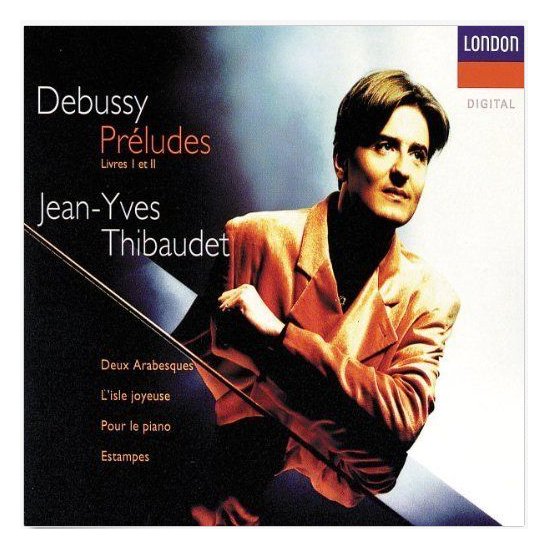 J-YT: This is where there’s lot of things involved.
Of course there is special repertoire I like better now. I’ve been concentrating
recently mostly in the Romantic repertoire — Chopin,
Liszt, Rachmaninoff, Brahms, Schumann — and the French
Impressionists — Claude Debussy, particularly, and
Ravel. But then I also get involved in the recording process because
when we plan a recording, I’ve got to play it as much as I can before in concerts.
I discuss with the record company what they want me to record, what I would
like to record, and they accept it or not. Once we have that said,
then I know that season we do play this and make a record. So it all
kind of goes together. Then there are things that I just want to play.
I just want to learn and want to play them, even if I don’t record them.
There’s always a couple of recitals a year where I decide what I want to
do.
J-YT: This is where there’s lot of things involved.
Of course there is special repertoire I like better now. I’ve been concentrating
recently mostly in the Romantic repertoire — Chopin,
Liszt, Rachmaninoff, Brahms, Schumann — and the French
Impressionists — Claude Debussy, particularly, and
Ravel. But then I also get involved in the recording process because
when we plan a recording, I’ve got to play it as much as I can before in concerts.
I discuss with the record company what they want me to record, what I would
like to record, and they accept it or not. Once we have that said,
then I know that season we do play this and make a record. So it all
kind of goes together. Then there are things that I just want to play.
I just want to learn and want to play them, even if I don’t record them.
There’s always a couple of recitals a year where I decide what I want to
do.|
Samson
François
Born: May 18, 1924 - Frankfurt am Main, Germany Died: October 22, 1970 - Paris, France 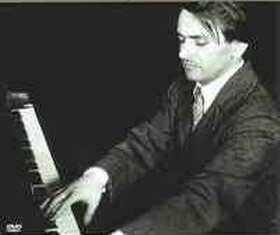 The admired French pianist, Samson Pascal François, was born in Frankfurt
where his father worked at the French consulate. His mother, Rose, named him
Samson, for strength, and Pascal, for spirit. François discovered the
piano early - at the age of two - and his first studies were in Italy, with
Mascagni, who encouraged him to give his first concert at the age of 6, in
which he played a Mozart concerto under Mascagni. Moving from country to
country with his itinerant family, he studied in Belgrade with Cyril Licar,
obtaining a first prize in performance. Licar also introduced him to the
works of Béla Bartók. Having studied in the Conservatoire in
Nice from 1932 to 1935, where he again won first prize, François came
to the attention of Alfred Cortot, who encouraged him to move to Paris and
study with Yvonne Lefébure at the l'École Normale de Musique,
the school Cortot co-founded with Auguste Mangeot. He also studied piano with
Cortot (who reportedly found him almost impossible to teach), and harmony
with Nadia Boulanger. In 1938, he moved to the Paris Conservatoire to study
with Marguerite Long, the doyenne of French teachers of the age. In 1940 he
won premier prix at this Conservatoire.
The admired French pianist, Samson Pascal François, was born in Frankfurt
where his father worked at the French consulate. His mother, Rose, named him
Samson, for strength, and Pascal, for spirit. François discovered the
piano early - at the age of two - and his first studies were in Italy, with
Mascagni, who encouraged him to give his first concert at the age of 6, in
which he played a Mozart concerto under Mascagni. Moving from country to
country with his itinerant family, he studied in Belgrade with Cyril Licar,
obtaining a first prize in performance. Licar also introduced him to the
works of Béla Bartók. Having studied in the Conservatoire in
Nice from 1932 to 1935, where he again won first prize, François came
to the attention of Alfred Cortot, who encouraged him to move to Paris and
study with Yvonne Lefébure at the l'École Normale de Musique,
the school Cortot co-founded with Auguste Mangeot. He also studied piano with
Cortot (who reportedly found him almost impossible to teach), and harmony
with Nadia Boulanger. In 1938, he moved to the Paris Conservatoire to study
with Marguerite Long, the doyenne of French teachers of the age. In 1940 he
won premier prix at this Conservatoire.In 1943 François won the Long-Thibaud Competition and thereafter embarked on a career, one of international scale once World War II had ended. Even during the war, Jacques Thibaud brought François to the attention of Walter Legge, the English recording producer turned wartime concert organizer; François was soon flown to England for an extended tour of factories and camps. From 1945 he toured regularly in Europe, and in 1947 he made his first appearances in the USA. He subsequently played all over the globe, including Communist China in 1964. Concentrating on the Romantic piano literature and especially the French repertoire, he was acclaimed for his performances of Franz Liszt, Robert Schumann, and Chopin, as well as Gabriel Fauré, Debussy, and Ravel. His Prokofiev, too, was impressive. French critics and audiences were especially receptive to his virtuosic approach. François found an appreciative audience in London as well, and enjoyed a largely positive reputation there during his mature years. His extravagant lifestyle, good looks, and passionate but highly disciplined playing, gave him a cult status as a pianist, though his passion for night life and his reckless behavior (characterized by lavish drinking and drug use) resulted in a heart attack on the concert platform in 1968. His early death followed only two years later. Samson François was also a keen jazz fan, and claimed that jazz influenced his playing. Among his other pursuits was that of composition. He composed, among other works, a concerto for piano and incidental music for film. Among his recordings is one of his own piano concerto. |
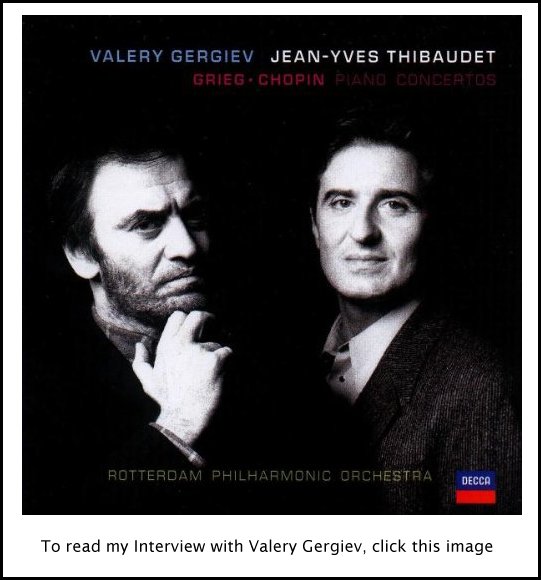 J-YT: The conductor is always supposed to be the
conductor of the orchestra that follows the soloist. Technically it
doesn’t really work that way because we’re all following each other.
We’re all making music together. Anyway, I actually always know the
orchestral part as much as the piano part. For me, playing with an
orchestra — even if it’s a real big orchestra
— it’s like chamber music. I listen constantly to every
instrument of the orchestra. That’s the only way to be really together
and to really have a good time. You can’t expect a hundred and ten
people to follow you every minute. The conductor just can’t make it
work. It’s not like pushing a button, you know. They need time
to react and everything, so in reality we just have to all follow each other.
But as far as important things like tempi
and dynamics, it’s really the soloist who knows what he wants, and the conductor
should agree. Even so, people can have fights, but I never have fights
because I decided a while ago that when you play one evening with a conductor,
it’s not worth having a fight because it’s just one evening of your life.
You should just enjoy it. The conductor sees it a different way.
It’s not that I give up, but you can find a compromise and make everyone happy.
J-YT: The conductor is always supposed to be the
conductor of the orchestra that follows the soloist. Technically it
doesn’t really work that way because we’re all following each other.
We’re all making music together. Anyway, I actually always know the
orchestral part as much as the piano part. For me, playing with an
orchestra — even if it’s a real big orchestra
— it’s like chamber music. I listen constantly to every
instrument of the orchestra. That’s the only way to be really together
and to really have a good time. You can’t expect a hundred and ten
people to follow you every minute. The conductor just can’t make it
work. It’s not like pushing a button, you know. They need time
to react and everything, so in reality we just have to all follow each other.
But as far as important things like tempi
and dynamics, it’s really the soloist who knows what he wants, and the conductor
should agree. Even so, people can have fights, but I never have fights
because I decided a while ago that when you play one evening with a conductor,
it’s not worth having a fight because it’s just one evening of your life.
You should just enjoy it. The conductor sees it a different way.
It’s not that I give up, but you can find a compromise and make everyone happy.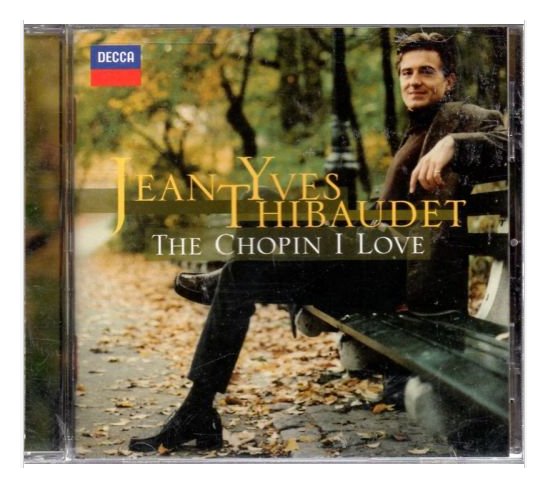 J-YT: You have to adjust to the piano, and to a lot
of things including the acoustic of the hall. That’s why we have what
we call acoustic rehearsals. Even if you’re on tour with an orchestra
every night, we arrive at six o’clock and we just try the hall for five minutes.
It can be interesting because some are very dry and some are very alive, so
you may have to add half-pedal . You feel it. It’s kind of natural,
and you don’t have to think about it. It’s just that your foot knows
if you have to add the pedal. It becomes a natural adjustment.
But it’s good to try the piano, and to try to feel the hall. It is
important to feel what it feels like to be on stage, and how the sound responds
to you when it comes back to you.
J-YT: You have to adjust to the piano, and to a lot
of things including the acoustic of the hall. That’s why we have what
we call acoustic rehearsals. Even if you’re on tour with an orchestra
every night, we arrive at six o’clock and we just try the hall for five minutes.
It can be interesting because some are very dry and some are very alive, so
you may have to add half-pedal . You feel it. It’s kind of natural,
and you don’t have to think about it. It’s just that your foot knows
if you have to add the pedal. It becomes a natural adjustment.
But it’s good to try the piano, and to try to feel the hall. It is
important to feel what it feels like to be on stage, and how the sound responds
to you when it comes back to you.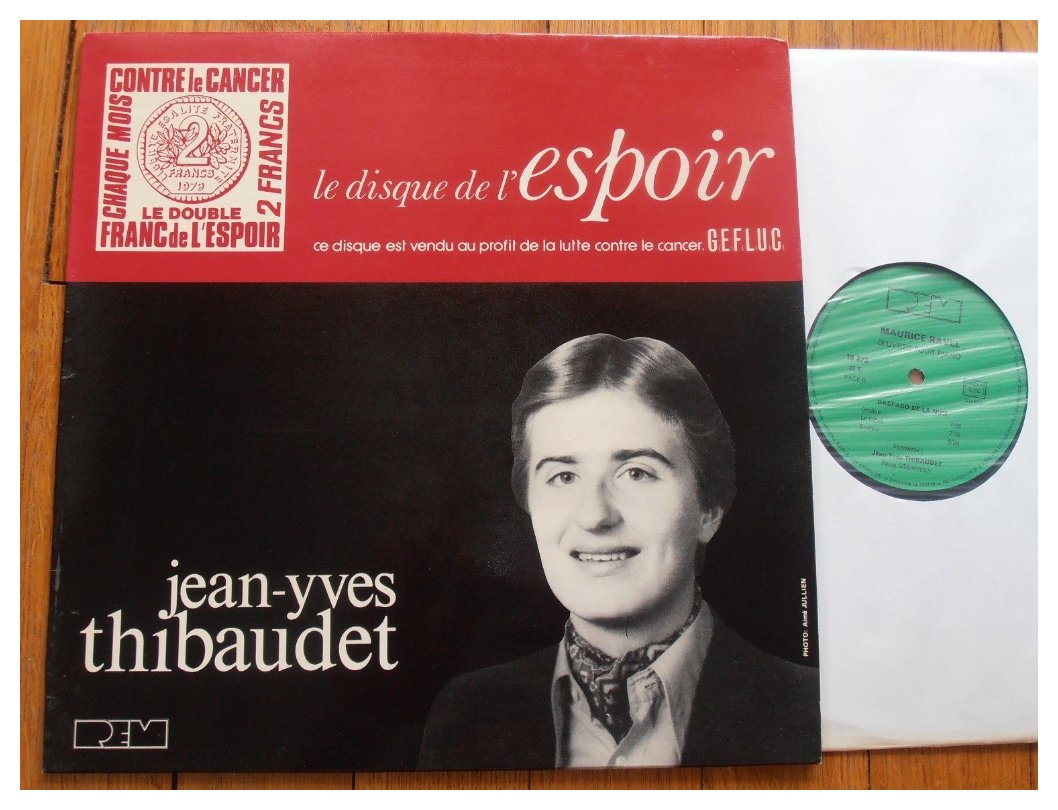
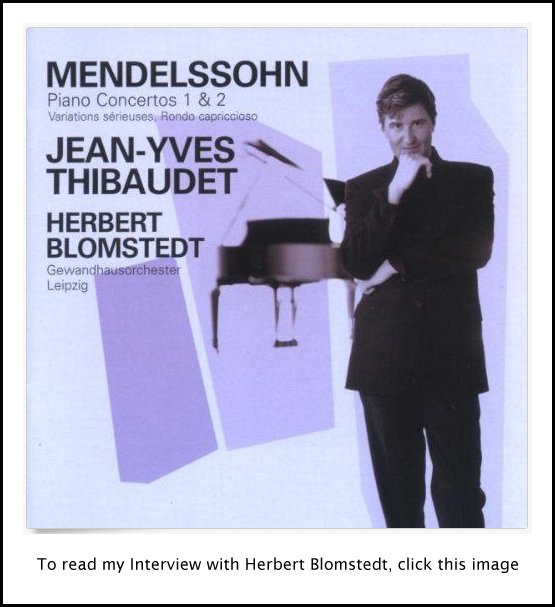 J-YT:
I never had that problem. I’ve been very, very lucky in my career because
it all went slowly, just gradually. I was kept going up on a line step
by step. I never went suddenly, so that’s why I feel so very confident.
I never had to suddenly jump ten steps at one point. I did competitions,
but not like the Van Cliburn.
It was a big one in Tokyo and a more little one in Italy. Then the Young
Concert Artists auditions in New York, which are absolutely fabulous.
That’s one of the most unique organizations in the world. They start
your career but they just give you a debut in New York and Washington and
Los Angeles. Then it just comes gradually, not suddenly where they give
you a hundred concerts in a year. So that was perfect for me.
Then came the recording contracts, and things just kept adding. So I
never really had this feeling of being pushed, and having to prove something.
That’s the advice I would give — sometimes you would
like to have things happening right away once you do competitions, but you
have to be patient. In the long run it’s very much more rewarding.
J-YT:
I never had that problem. I’ve been very, very lucky in my career because
it all went slowly, just gradually. I was kept going up on a line step
by step. I never went suddenly, so that’s why I feel so very confident.
I never had to suddenly jump ten steps at one point. I did competitions,
but not like the Van Cliburn.
It was a big one in Tokyo and a more little one in Italy. Then the Young
Concert Artists auditions in New York, which are absolutely fabulous.
That’s one of the most unique organizations in the world. They start
your career but they just give you a debut in New York and Washington and
Los Angeles. Then it just comes gradually, not suddenly where they give
you a hundred concerts in a year. So that was perfect for me.
Then came the recording contracts, and things just kept adding. So I
never really had this feeling of being pushed, and having to prove something.
That’s the advice I would give — sometimes you would
like to have things happening right away once you do competitions, but you
have to be patient. In the long run it’s very much more rewarding.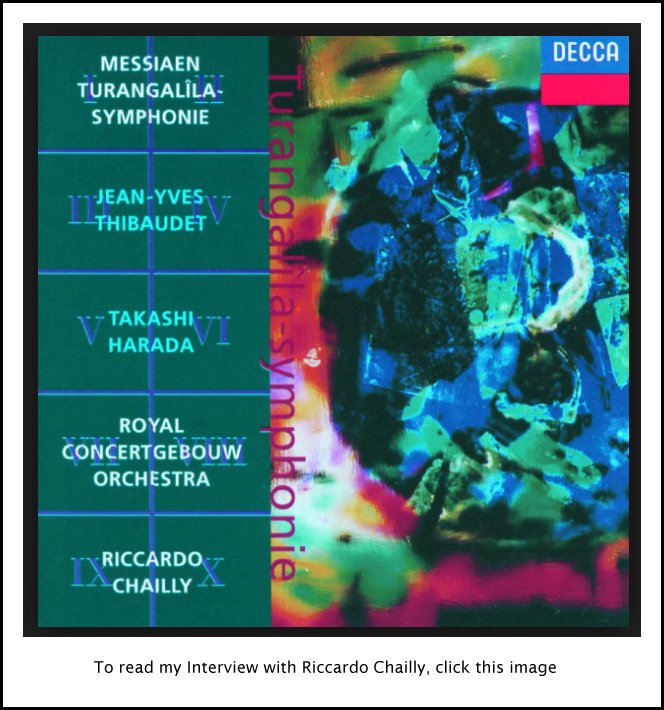 J-YT: Wonderful fun! That’s what I was saying;
that’s the only way I would do it. If it wasn’t fun, I’d be doing something
else. It’s marvelous and I just enjoy it. I couldn’t live without
it. It doesn’t mean that I have to do it all the time. I need
vacations with no piano as well, so when I come back to the piano, I like
it even better because I missed it so much!
J-YT: Wonderful fun! That’s what I was saying;
that’s the only way I would do it. If it wasn’t fun, I’d be doing something
else. It’s marvelous and I just enjoy it. I couldn’t live without
it. It doesn’t mean that I have to do it all the time. I need
vacations with no piano as well, so when I come back to the piano, I like
it even better because I missed it so much!|
Jean-Yves Thibaudet 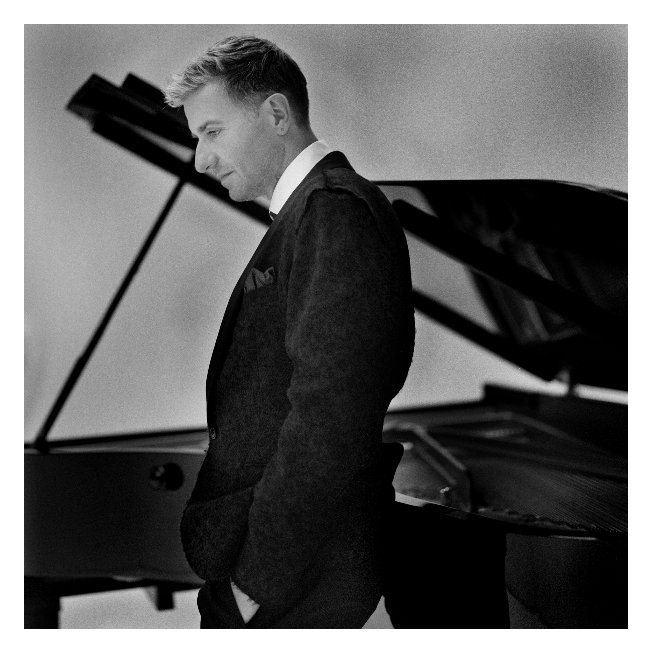
Jean-Yves Thibaudet's 2014-2015 season is an intriguing combination of a wide variety of music: a balance of orchestral appearances, chamber music, and recitals and a repertoire that includes familiar pieces, unfamiliar work by well-known composers, and new compositions. He also follows his passion for education and fostering the next generation of performers by becoming the first-ever resident artist at the Colburn School of Los Angeles this year and the following two. Summer 2014 sees him touring with Mariss Jansons and the Royal Concertgebouw Orchestra at the Concertgebouw Amsterdam, the Edinburgh International Festival, the Lucerne Festival, and the Ljubljana Festival. Mr. Thibaudet then travels to play Gershwin paired with a new piano concerto “Er Huang” by Quigang Chen with Long Yu conducting to open the China Philharmonic season in Beijing—a program both artists will repeat in Paris with the Orchestre de Paris. In October, with the Philadelphia Orchestra and its Music Director Yannick Nézet-Séguin, he performs the Khachaturian Piano Concerto, which he also plays in the spring with the Cincinnati Symphony and on tour in Germany and Austria with the Deutsches Symphonie-Orchester Berlin under the baton of Tugan Sohkiev. After concerts in Prague, Mr. Thibaudet embarks on a US tour with the Czech Philharmonic Orchestra in November, reaching both East and West coasts with a grand finale at Carnegie Hall, where he performs Liszt's Piano Concerto No. 2. The end of the year is a whirlwind of Gershwin, Ravel, and Liszt with the Radio Symphony Orchestra Stuttgart, the Berlin Radio Symphony Orchestra, the Oslo Philharmonic Orchestra, and the Gürzenich Orchestra Cologne. In the new year, audiences can hear Mr. Thibaudet play MacMillan’s Piano Concerto No. 3, which he premiered in 2011, with the St. Louis Symphony and New York Philharmonic, both conducted by Stéphane Denève, and then Liszt with the Cleveland Orchestra and the Naples Philharmonic. After playing a duo recital with Gautier Capuçon in his native France at the Festival de Pâques in Aix-en-Provence, Mr. Thibaudet returns to the United States to play Ravel's Piano Concerto in G Major—one of his signature pieces from the French repertoire for which he is renowned—with the Atlanta Symphony Orchestra and the Boston Symphony Orchestra under Bernard Haitink's direction, in addition to Poulenc and Fauré with the Boston Symphony Chamber Players. Under Michael Tilson's Thomas's baton, he performs Bernstein's Age of Anxiety in San Francisco, where he celebrates Thomas's 70th birthday earlier in the year by playing the Liszt Hexaméron with Emanuel Ax, Jeremy Denk, Yuja Wang, and Marc-André Hamelin. Mr. Thibaudet performs Ravel's Piano Concerto for the Left Hand with Gustavo Dudamel and the Los Angeles Philharmonic before interpreting both the Ravel Piano Concerto and Messiaen's Turangalîla with the Chicago Symphony Orchestra and Esa-Pekka Salonen as part of the orchestra's 2015 Reveries and Passions Festival. He then travels to Europe to perform with the Frankfurter Museumsorchester (Venzago), Dresden Philharmonic (de Billy), and the Munich Philharmonic (Bychkov), among others, before ending the season in dramatic fashion with Beethoven's Choral Fantasy with the Orchestre de L’Opéra de Paris under the baton of Music Director Philippe Jordan. 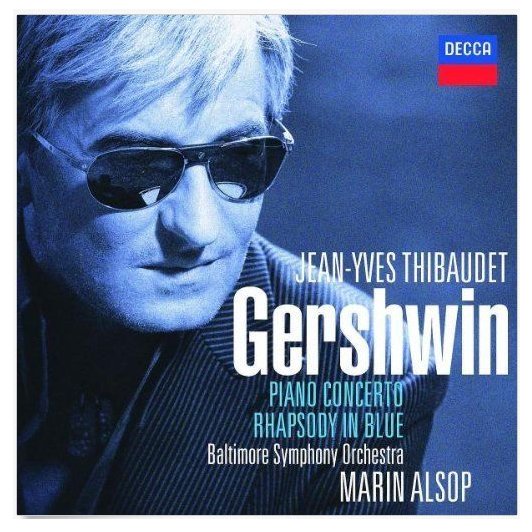 A distinguished recording artist, Jean-Yves Thibaudet has been nominated
for two Grammy Awards and won the Schallplattenpreis, the Diapason d'Or, Choc
du Monde de la Musique, a Gramophone Award, two Echo awards, and the Edison
Prize. In 2010 he released Gershwin, featuring big jazz band orchestrations
of Rhapsody in Blue, variations on “I Got Rhythm,” and Concerto in F live
with the Baltimore Symphony and music director Marin Alsop [photo of CD at left]. On his Grammy-nominated
recording Saint-Saëns, Piano Concerti Nos. 2&5, released in 2007,
Thibaudet is joined by long-standing collaborator Charles Dutoit and the
Orchestre de la Suisse Romande. Thibaudet's Aria—Opera Without Words, which
was released the same year, features transcriptions of arias by Saint-Saëns,
R. Strauss, Gluck, Korngold, Bellini, J. Strauss II, Grainger, and Puccini;
some of the transcriptions are by Mikhashoff, Sgambati, and Brassin, and others
are Thibaudet's own. Among his other recordings are Satie: The Complete Solo
Piano Music and the jazz albums Reflections on Duke: Jean-Yves Thibaudet Plays
the Music of Duke Ellington and Conversations With Bill Evans, his tribute
to two of jazz history's legends.
A distinguished recording artist, Jean-Yves Thibaudet has been nominated
for two Grammy Awards and won the Schallplattenpreis, the Diapason d'Or, Choc
du Monde de la Musique, a Gramophone Award, two Echo awards, and the Edison
Prize. In 2010 he released Gershwin, featuring big jazz band orchestrations
of Rhapsody in Blue, variations on “I Got Rhythm,” and Concerto in F live
with the Baltimore Symphony and music director Marin Alsop [photo of CD at left]. On his Grammy-nominated
recording Saint-Saëns, Piano Concerti Nos. 2&5, released in 2007,
Thibaudet is joined by long-standing collaborator Charles Dutoit and the
Orchestre de la Suisse Romande. Thibaudet's Aria—Opera Without Words, which
was released the same year, features transcriptions of arias by Saint-Saëns,
R. Strauss, Gluck, Korngold, Bellini, J. Strauss II, Grainger, and Puccini;
some of the transcriptions are by Mikhashoff, Sgambati, and Brassin, and others
are Thibaudet's own. Among his other recordings are Satie: The Complete Solo
Piano Music and the jazz albums Reflections on Duke: Jean-Yves Thibaudet Plays
the Music of Duke Ellington and Conversations With Bill Evans, his tribute
to two of jazz history's legends.Known for his style and elegance on and off the traditional concert stage, Thibaudet has had an impact on the world of fashion, film and philanthropy. His concert wardrobe is by celebrated London designer Vivienne Westwood. In 2004 he served as president of the prestigious Hospices de Beaune, an annual charity auction in Burgundy, France. He had an onscreen cameo in the Bruce Beresford feature film on Alma Mahler, Bride of the Wind, and his playing is showcased throughout the soundtrack. Thibaudet was the soloist on Dario Marianelli’s Oscar- and Golden Globe-award winning score for the film Atonement and his Oscar-nominated score for Pride and Prejudice. He recorded the soundtrack of the 2012 film Extremely Loud & Incredibly Close, composed by Alexandre Desplat. He was also featured in the 2000 PBS/Smithsonian special Piano Grand!, a piano performance program hosted by Billy Joel to pay tribute to the 300th anniversary of the piano. Jean-Yves Thibaudet was born in Lyon, France, where he began his piano studies at age five and made his first public appearance at age seven. At twelve, he entered the Paris Conservatory to study with Aldo Ciccolini and Lucette Descaves, a friend and collaborator of Ravel. At age fifteen, he won the Premier Prix du Conservatoire and, three years later, the Young Concert Artists Auditions in New York City. In 2001 the Republic of France awarded Thibaudet the prestigious Chevalier dans l'Ordre des Arts et des Lettres, and in 2002 he was awarded the Premio Pegasus from the Spoleto Festival in Italy for his artistic achievements and his long-standing involvement with the festival. In 2007 he received the Victoire d'Honneur, a lifetime career achievement award and the highest honor given by France's Victoires de la Musique. The Hollywood Bowl honored Thibaudet for his musical achievements by inducting him into its Hall of Fame in 2010. Previously a Chevalier of the Ordre des Arts et des Lettres, Thibaudet was promoted to the title of Officier by the French Minister of Culture in 2012. (As of September 2, 2014) -- Note: Names which are links
refer to my Interviews elsewhere on this website. BD
|
© 1993 Bruce Duffie
This conversation was recorded in Chicago on July 12, 1993. Portions were broadcast on WNIB in 1996 and 1999. This transcription was made in 2014, and posted on this website at that time. My thanks to British soprano Una Barry for her help in preparing this website presentation.
To see a full list (with links) of interviews which have been transcribed and posted on this website, click here.
Award - winning broadcaster Bruce Duffie was with WNIB, Classical 97 in Chicago from 1975 until its final moment as a classical station in February of 2001. His interviews have also appeared in various magazines and journals since 1980, and he now continues his broadcast series on WNUR-FM, as well as on Contemporary Classical Internet Radio.
You are invited to visit his website for more information about his work, including selected transcripts of other interviews, plus a full list of his guests. He would also like to call your attention to the photos and information about his grandfather, who was a pioneer in the automotive field more than a century ago. You may also send him E-Mail with comments, questions and suggestions.